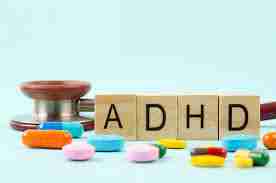
Attention-Deficit/Hyperactivity Disorder (ADHD) can pose significant challenges for both children and their families. Characterized by difficulties in attention, hyperactivity, and impulsivity, ADHD can impact various aspects of a child’s life, including academic performance, social interactions, and emotional well-being. However, with the right strategies and support, parents can help their children manage ADHD effectively. In this article, we’ll explore practical approaches that parents can employ to support their child with ADHD.
Understanding ADHD:
Before delving into strategies, it’s crucial for parents to have a clear understanding of ADHD. ADHD is a neurodevelopmental disorder that affects the brain’s executive functions, which are responsible for self-control, organization, and focus. Recognizing that ADHD is a legitimate medical condition can help parents approach their child’s challenges with empathy and patience.
Establishing Routines:
Children with ADHD often thrive in structured environments. Establishing consistent daily routines can help minimize distractions and create a sense of predictability for the child. Encourage your child to follow a regular schedule for activities such as waking up, meals, homework, and bedtime. Visual schedules or checklists can serve as helpful reminders and aids for organization.
Break Tasks into Manageable Steps:
Children with ADHD may become overwhelmed by tasks that seem too large or complex. Break down tasks into smaller, more manageable steps, and provide clear instructions. Celebrate each small accomplishment to motivate your child and reinforce positive behavior.
Utilizing Positive Reinforcement: Positive reinforcement is a powerful tool for encouraging desired behaviors in children with ADHD. Offer praise and rewards for tasks completed successfully, such as completing homework without distractions or following instructions the first time they are given. This positive feedback can boost your child’s self-esteem and motivation.
Encouraging Physical Activity:
Regular physical activity can help children with ADHD manage their symptoms by reducing hyperactivity and improving focus. Encourage your child to engage in activities they enjoy, such as sports, dancing, or biking. Physical exercise releases endorphins, which can improve mood and concentration.
Limiting Screen Time:
Excessive screen time, particularly with electronic devices like smartphones, tablets, and video games, can exacerbate ADHD symptoms. Set limits on screen time and encourage alternative activities that promote engagement and creativity, such as reading, art, or outdoor play.
Creating a Supportive Environment:
Establishing a supportive home environment is essential for children with ADHD. Minimize distractions by designating quiet areas for studying or completing homework. Keep the home environment organized and clutter-free to reduce visual stimuli that may overwhelm your child.
Developing Coping Strategies:
Help your child develop coping strategies to manage impulsivity and frustration. Teach techniques such as deep breathing exercises, mindfulness, or counting to ten before reacting impulsively. Encourage your child to express their emotions openly and provide a safe space for them to discuss their feelings.
Collaborating with Educators:
Open communication with teachers and school staff is critical for supporting your child’s academic success. Work together to develop an individualized education plan (IEP) or 504 plan that outlines specific accommodations and support services tailored to your child’s needs. Regularly monitor your child’s progress and address any concerns promptly.
Seeking Professional Help:
While parental support is invaluable, seeking professional help from healthcare professionals, such as pediatricians, psychologists, or psychiatrists, is essential for managing ADHD. These professionals can provide comprehensive evaluations, medication management, and therapy tailored to your child’s specific needs.
Promoting Healthy Sleep Habits:
Adequate sleep is crucial for children with ADHD as it can help regulate mood, improve focus, and reduce impulsivity. Establish a consistent bedtime routine and create a calm, relaxing environment conducive to sleep. Limit caffeine consumption and screen time before bedtime to promote better sleep quality.
Fostering Social Skills:
Children with ADHD may struggle with social interactions and maintaining friendships. Provide opportunities for your child to practice social skills through playdates, extracurricular activities, or group settings. Teach empathy, active listening, and conflict resolution techniques to help your child navigate social situations effectively.
In conclusion,
Managing ADHD in children requires a multifaceted approach that addresses various aspects of their daily lives. By implementing these strategies and providing consistent support, parents can empower their children to thrive despite the challenges posed by ADHD. Remember that every child is unique, and it may take time to find the strategies that work best for your child. Stay patient, stay persistent, and celebrate the progress along the way.